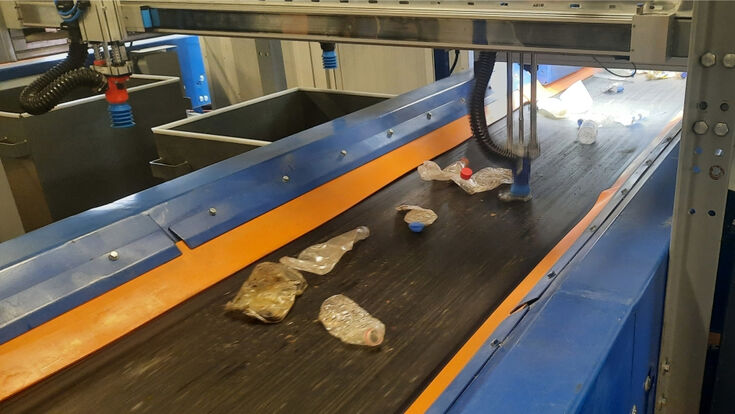Navigating Liquid Waste Challenges with Reclaim Waste Melbourne's Experience
Navigating Liquid Waste Challenges with Reclaim Waste Melbourne's Experience
Blog Article
Fostering Source Effectiveness and Environmental Security Through Fluid Waste Removal Programs
In the realm of environmental stewardship, the management of fluid waste stands as a crucial juncture where resource performance and ecological protection merge. With a lens of aggressive involvement and critical insight, the landscape of liquid waste administration introduces a tapestry of challenges and opportunities that beckon us to check out the course in the direction of a greener and even more lasting future.
Importance of Liquid Waste Removal
The importance of liquid waste removal hinges on its essential function in protecting environmental health and wellness and protecting public well-being. Liquid waste, if not correctly handled, can pose major dangers to ecological communities, water resources, and human health and wellness. With effective removal processes, hazardous substances such as virus, toxins, and chemicals are protected against from polluting the atmosphere and causing harmful effects.
Correct fluid waste elimination likewise helps in stopping the spread of conditions and reducing the potential for groundwater contamination. By safely taking care of liquid waste, the threat of waterborne health problems and pollution-related health issues is considerably decreased - Reclaim Waste Melbourne. Additionally, effective elimination practices add to preserving the general cleanliness and visual appeals of communities, therefore improving the quality of life for homeowners
Furthermore, fluid waste removal plays a vital role in sustaining sustainable growth and making sure compliance with ecological laws. By sticking to appropriate waste management businesses, procedures and industries can minimize their environmental impact and demonstrate company responsibility. Ultimately, spending in robust liquid waste elimination programs is essential for promoting ecological stewardship and fostering a healthier, much safer future for all.

Benefits of Effective Disposal
Reliable disposal of fluid waste not only safeguards environmental health and wellness and public wellness however also produces various benefits that expand beyond prompt containment procedures. One key advantage of reliable disposal is the reduction of contamination in water bodies and dirt. By appropriately taking care of liquid waste, the threat of contamination decreases, safeguarding and preserving environments biodiversity. Additionally, effective disposal methods add to resource preservation. Through processes like reusing and power healing, valuable resources can be removed from liquid waste, advertising sustainability and decreasing the strain on resources. Taking on efficient disposal methods can lead to set you back savings for organizations and communities. By enhancing waste monitoring procedures, organizations can improve operations, minimize disposal costs, and possibly generate earnings via the sale of recycled products. Overall, the advantages of efficient fluid waste disposal are complex, encompassing environmental management, source efficiency, and economic benefits.
Technologies for Waste Treatment
Utilizing advanced technologies for waste treatment plays an important role in guaranteeing the effective monitoring and secure disposal of liquid waste. One of the vital modern technologies utilized in liquid waste therapy is organic treatment. This method utilizes microorganisms to break down raw material in the waste, converting it into harmless by-products. One more typical modern technology is chemical treatment, where chemicals are added to the this page waste to counteract you can find out more unsafe parts or precipitate impurities for elimination. Physical therapy techniques, such as filtration and sedimentation, are also extensively utilized to separate solids from fluid waste.
Furthermore, thermal therapy approaches such as incineration can be used for the complete destruction of dangerous elements in fluid waste. Generally, the integration of diverse treatment technologies makes certain ecologically pleasant and thorough management of fluid waste.
Role of Regulations and Compliance
In the world of fluid waste monitoring, adherence to regulatory structures and conformity criteria is extremely important for safeguarding environmental wellness and sustainability. Rules play an essential role in governing the proper handling, treatment, and disposal of fluid waste to prevent injury to ecosystems and human health. By developing clear standards and requirements, governing bodies make sure that services and individuals included in liquid waste management run in an eco accountable way.
Conformity with these policies is not only a lawful need yet likewise an honest responsibility to secure the atmosphere for future and present generations. It involves implementing best techniques in waste collection, treatment, disposal, and transportation to reduce environmental impact and advertise source effectiveness. Non-compliance can result in penalties, lawsuit, and reputational damage for companies, highlighting the relevance of upholding governing requirements.

Future Patterns in Waste Administration

An additional click to read crucial fad in waste monitoring is the fostering of sophisticated data analytics and expert system to optimize waste collection courses, boost arranging procedures, and improve general operational performance. These modern technologies allow waste administration companies to make data-driven choices, bring about set you back savings and environmental advantages.
Moreover, there is a growing focus on the advancement of decentralized waste administration systems, such as onsite treatment centers and mobile waste processing units. These systems supply versatility and scalability, permitting more reliable waste handling in diverse environments.
Verdict
Finally, fostering source efficiency and environmental management through fluid waste removal programs is essential for lasting advancement. Efficient disposal techniques, advanced innovations for waste treatment, and stringent laws play vital functions in minimizing environmental influence. Looking ahead, continual development and renovation in waste administration practices will be essential for resolving the growing difficulties of fluid waste disposal.
In the world of environmental stewardship, the administration of fluid waste stands as an important juncture where resource effectiveness and ecological protection assemble (Reclaim Waste Melbourne).Making use of advanced innovations for waste therapy plays a crucial function in making sure the reliable management and risk-free disposal of liquid waste.In the world of fluid waste monitoring, adherence to regulatory frameworks and compliance requirements is paramount for guarding environmental health and sustainability.In conclusion, promoting resource effectiveness and ecological defense via fluid waste removal programs is essential for sustainable advancement. Looking ahead, constant advancement and renovation in waste monitoring techniques will be vital for dealing with the expanding challenges of liquid waste disposal
Report this page